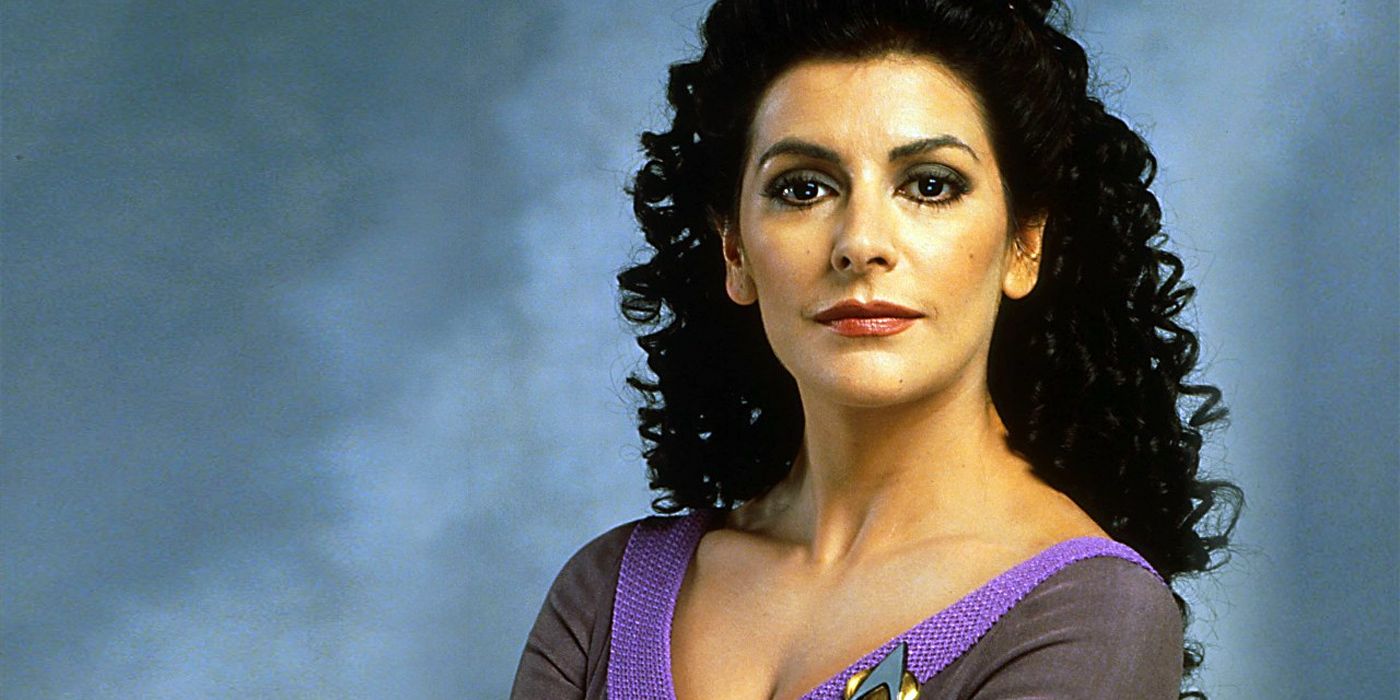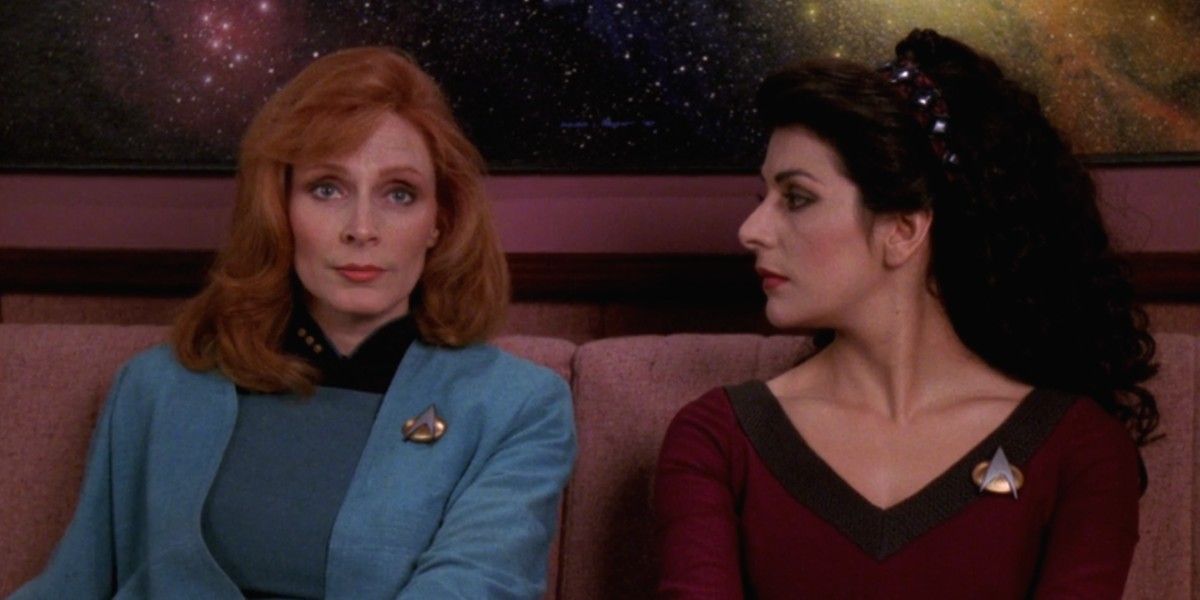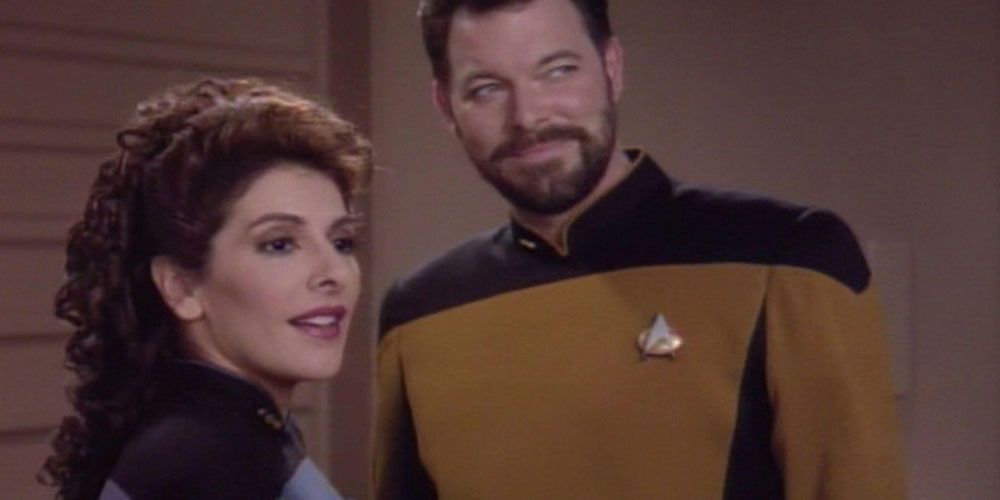Since its debut, Star Trek has been a platform for progressive stories about humanity, but its history is not without bumps. Legendary creator Gene Roddenberry was the crucial force behind some of the franchise's most powerful moments, such as the first televised interracial kiss in 1968's "Plato's Stepchildren." But he was also flawed, and sometimes his fellow creators had to intervene to halt some pretty iffy decisions. One of the most lurid near-misses was Roddenberry's early plans for Deanna Troi, which took the character's emotional heart and put it in the shell of an oversexed multi-breasted hermaphrodite.
Roddenberry made a concentrated effort to promote inclusivity and diversity in Star Trek. It's a laudable decision that's helped the franchise's longevity. However, in recent years it's faced new critique for stumbling when it comes to LGBTQ+ representation. But Roddenberry's fascination with inclusivity sometimes leaned too hard into his libertine fascination with sexuality. While that fascination sometimes created the best of Trek, as it did in 1966's "The Naked Time," with its swashbuckling Sulu and erotically charged characters, other moments, like Star Trek: The Next Generation's "The Naked Now," garnered confusion and scorn.
Roddenberry's early plans for the Enterprise-D's empathetic counselor were equally well-intentioned and deeply questionable. The Fifty-Year Mission by Mark A. Altman and Edward Gross highlights Roddenberry's belief that in the 24th century, mental health should be equally as important as physical. That's a valuable point of view, and the book goes on to stress that Troi was meant to be Spock-like -- wise and cool under duress.
But the physical ideal around Troi went through a crucial change in those early stages. Biography Gene Roddenberry: The Myth and the Man Behind Star Trek by Joel Engel contains some gobsmacking information about his early concept. Fellow Star Trek legend Dorothea "D.C." Fontana, who would join Roddenberry in shaping Next Generation, had to deter Gene from his bizarre concept of a hermaphroditic, hypersexual Troi with an improbable set of four breasts.
As the biography recounts, Fontana told Roddenberry, "I honestly believe you will offend most women, and maybe a lot of men with this character. Besides, how are you going to arrange those four provocatively shaped breasts? Four in a row? They had better be small. Two banks of two? Do you know how much trouble women have with the normal number—keeping them out of the way of things, I mean? Four straight up and down? Don't be silly."
It's a testament to the necessity of diversity in the writer's room that these basic anatomy considerations were enough to stop this truly bizarre decision. Nonetheless, Deanna Troi's final outcome would still lead to years of feminist study, critique and even defense. Though her role as ship's counselor was often as vital to the crew's health as Roddenberry would have hoped, her costume design often still laid her bare as the most overtly sexualized Star Trek character. Deanna Troi's cleavage would become a major talking point for many fans, and the prominence of her physical appearance would end up stunting some of the potentials the character was meant to have.
It would take six seasons of Next Generation and an irascible guest character named Captain Edward Jellico before Counselor Deanna Troi finally got to wear the same uniform as everyone else. To the surprise of few women and to the delight of star Marina Sirtis, this small costuming change immediately impacted the sort of storylines Deanna would be part of. Finally recognized as competent, Troi began to achieve her potential, sometimes even leading an away team.
As the heart of Star Trek, it's a shame that it took so long for Troi to be seen as truly equal to her peers on the bridge of the Enterprise. And while Roddenberry's heart was in the right place when coming up with Troi, sometimes even legends need some guidance to make sure a story is told in the best way possible.



